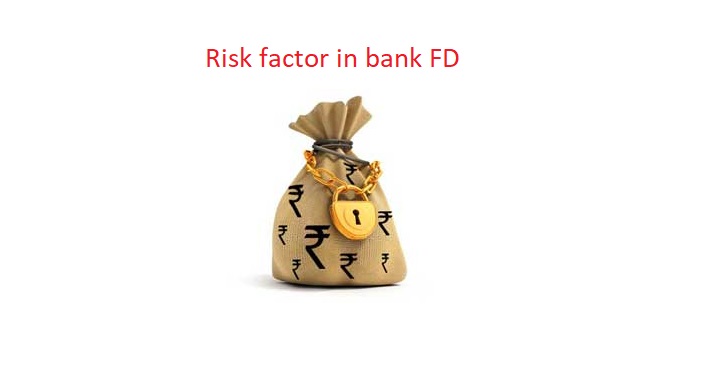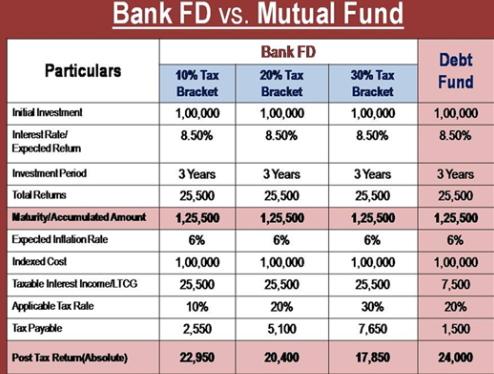
Indexation Benefits On Debt Mutual Funds
 Tanish Goswami -
Apr 14, 2023
Tanish Goswami -
Apr 14, 2023
By eliminating long-term capital gains, the Finance Bill 2023 amendment proposes to tax debt mutual funds similarly to other debt instruments like fixed deposits. The indexation facility that came with it is also closed by this.
One of the most cherished benefits of debt fund investors has been eliminated by the amendment to the Finance Bill, 2023, which was approved by the Lok Sabha on March 24. This benefit is known as the indexation benefit.
Until recently, unit holders of debt funds were eligible for this tax break on their long-term capital gains (LTCG) if they remained invested for at least three years.
The indexation benefits will also be eliminated as a result of the Finance Bill's removal of LTCG benefits.
Now, the Bill will be presented to the Rajya Sabha. To become an Act, it would then need the President's approval.
What is indexation?
Indexation cuts down charges as it works out them after representing expansion.
The indexed cost of acquisition can be factored into an assesses's LTCG tax liability under current tax laws—in this case, a debt fund investor.
For example, on the off chance that you purchase a thing for Rs 10 today, it will merit somewhat more, a couple of years down the line. Listed cost of expansion considers yearly expansion, and a recipe is likewise determined to lift your expense cost up.
To put it another way, indexation assists in adjusting the investment amount in relation to the value of the Cost Inflation Index (CII) for the fiscal year of purchase and sale, thereby reducing investors' tax burden.
By dividing the capital invested by the CII value of the year of the transfer of debt mutual fund units by the CII value of the year of investment, the indexed cost of acquisition can be calculated.
For instance, on the off chance that you put Rs 10 lakh in an obligation common asset in 2014-15 and reclaimed it for Rs 18 lakh in 2021-22, the listed expense of securing would be Rs 13,20,833 [10,00,000 x (317/240)]. Your LTCG would therefore be Rs 4,79,167 (18,00,000 - 13,20,833), which is the amount subject to LTCG tax at a rate of 20%.
How much is CII worth?
The inflation-adjusted cost of acquiring assets like real estate, gold, debt funds, and so on is determined using CII values. While utilizing such assets to calculate the LTCG. The CII misleadingly inflates cost, decreasing the contrast between the deal and costs, which cuts down the assessment responsibility. Investors in debt funds had reaped the benefits thus far. Investors in equity mutual funds did not, of course, have access to the benefits of indexation.
The tax arbitrage has been eliminated by the Finance Bill 2023 amendment of March 24.
The alteration to treat acquires on obligation shared assets as momentary increases will significantly decrease the allure of such items. As far as taxation is concerned, this now places debt mutual funds on par with other debt instruments like fixed deposits.
Capital gains from the transfer of mutual fund units, except for equity-oriented funds, that have been held for more than three years are currently treated as long-term and subject to a 20% tax rate with an indexation benefit.
The amendment to the Finance Bill 2023 proposes to tax gains from the transfer of units of specific mutual funds at slab rates and treat them as short-term gains. In addition, market-linked debentures will be taxed under the original bill. Funds that invest at least 35% of their proceeds in domestic companies are included in the definition of "specified mutual funds." This could be gold ETFs, debt mutual funds, etc., where the amount invested in domestic businesses is less than 35% of the fund's proceeds.
The indexation advantage that debt mutual funds enjoyed over fixed deposits and that attracted investors will be ended by the new rule.
Such mutual funds appear to be taxed in the same way that bank deposits, which are taxed at slab rates, are. The grandfathering benefit is not available for market-linked debentures, but the proposed amendment will have an effect on the transfer of units of certain mutual funds acquired after April 1, 2023.
Book one complimentary wealth management consultation with Investocafe’s certified advisor.
Happy Investing !!!
Visit www.investocafe.com to know about mutual fund investment options and stay on path of financial freedom
Written by: Tanish Goswami
To get in touch, write to tanish.goswami@investocafe.com or reach through www.investocafe.com.
To get in touch please visit us at investocafe.com














